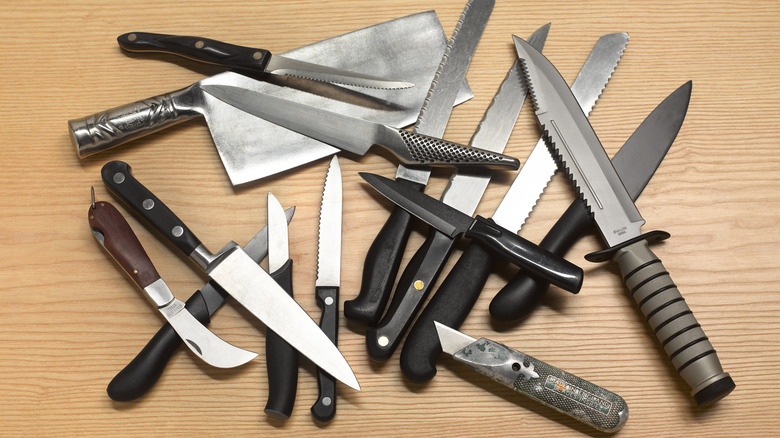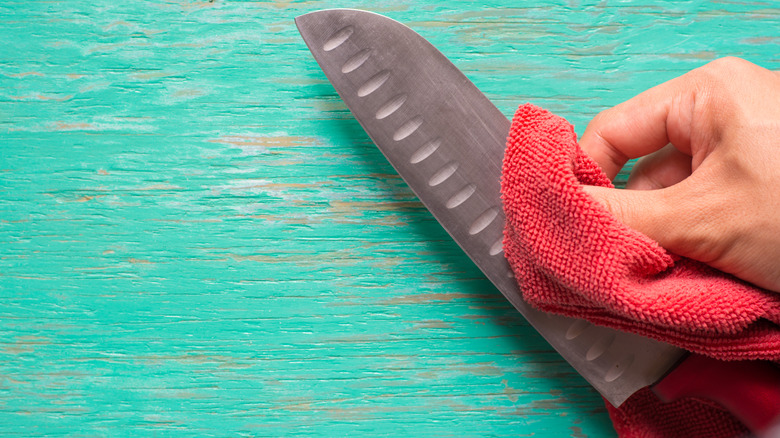Skipping This Cleaning Step Is Ruining Your Kitchen Knives
If you're a cook — whether an amateur or a professional — there's simply no tool or kitchen equipment more important than your chef's knife. For those who love the kitchen, this tool performs so many vital tasks: more than 90 percent of them, to be specific, including slicing and dicing produce and preparing proteins including meat and fish (via Epicurious). Chef's knives are one of the pricier items of the kitchen, ranging from $50 to $100 for a mid-range knife (via Kitchn) to more than $1000 for some professional-grade knives (via Prudent Reviews).
If you're going to invest a significant chunk of money in a good knife, you'll want to ensure you're taking excellent care of it in order to extend its life. Some tips for basic knife care include sharpening (and honing) them on a regular basis, always cutting on a cutting board, and storing knives appropriately, whether in a wooden knife block or on a magnetic strip (via The Spruce Eats).
Another super-important area when it comes to knife care? How you wash them. Never chuck your knives into the dishwasher, where a knife can bang into other objects and dull very quickly; always hand-wash it with hot, soapy water (via Kitchn). And once you've gone to that length, there's one more essential knife-washing tip you'll need to remember.
Always dry your knife immediately after washing it
So you've got yourself an excellent kitchen knife that's sharp and slices with ease, and you always take care to maintain and store it properly: good job! Now, there's another thing you'll need to remember to keep your knife in excellent shape. Did you know that you should always wash your knife as soon as you use it, instead of letting it languish on a dirty cutting board or in a packed sink? According to knifemaker Artisan Revere, a dirty knife is at risk of being affected by any acid, salt, or moisture clinging to the blade, which can eat away at the steel and lead to dulling or rusting.
"Moisture is the enemy of steel. So are acid and salt," the company's founder, David Olkovetsky, remarked. Another step that's essential to safeguarding any good knife? Dry the blade off with a towel and store the knife immediately, as opposed to letting it air-dry in your dish rack.
According to TipHero, a knife that's shoved into a rack with other utensils is more susceptible to banging up against them and risking a dulled or nicked blade. Additionally, as cited above, a wet knife is at risk of rusting, due to the salt and minerals in tap water that can erode the steel. So now you know: wash a dirty knife immediately and hand-dry it with a towel right afterward. You'll get much more life out of this essential kitchen tool.

